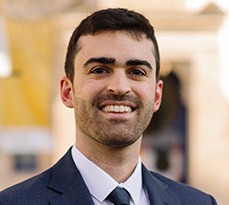The Cambridge MBAs following their passion and taking their skills into the fast-growing gaming sector.
When Julia Palatovska (MBA 2014) graduated, she already had her ideal job lined up. She was heading straight to London Venture Partners (LVP), an early-stage VC fund that invests exclusively in the game ecosystem. “The three founding partners were looking to make their first hire and they were searching for someone with an MBA who also had experience in the games industry. There weren’t many of us at the time. Luckily, they found me through the Cambridge network.”

Listed by Casual Games Association amongst The Most Prominent Woman in Games back in 2013, Julia’s entire career has been in the games industry. She spent nearly seven years at G5 Entertainment building a licensing and publishing team that sourced game titles from over 70 game developers and IP owners globally, culminating in a successful NASDAQ listing for the company.
“But I had a bit of imposter syndrome and was looking for a formal validation of my skills. My creative pitch was that I wanted an MBA to help me go on and revolutionise the games industry, but most business schools just didn’t get it.
“Then I saw a blog by Hamza Mudassir, an MBA alumnus and now a Cambridge Judge Business School (CJBS) Fellow, about his own experience going into the games industry after his MBA. I got in touch, and he responded within two hours. I was so impressed. We shared a passion for games, and he convinced me Cambridge would be a great fit for me. He was right – I really enjoyed the entrepreneurial spirit. And I met my husband, Denis Terpanov (MBA 2015) who reached out to me for advice as a prospective MBA. I fell in love with him when I saw how good he was at playing Clash Royale by Supercell!”
After Julia had spent two years in London at LVP, investing in more than 30 start-up games companies across Europe and the US, the couple moved together to the West Coast, USA, to be near Silicon Valley. Today Denis also works in the gaming industry and is famous amongst the creator community behind Dorian, the women-first game platform for creators, streamers, and players which Julia co-founded in 2018.
“Smartphones democratised access to games and today women make up more than half of games players on mobile. Fiction creation is dominated by women, but most of the current platforms offer no opportunities for monetisation. I wanted to build a creator platform that allowed anyone to produce games, without a technical or software engineering background.” Dorian has just announced a further $14 million in Series A funding, led by The Raine Group, with Julia’s former employer LVP amongst the investors.
Julia has seen the games sector evolve from one based around passion to a serious industry now experiencing consolidation. “The opportunities in gaming are huge. The industry is growing like crazy, at more than 20% a year, and globally it is already bigger than sports and film media combined. But still only 16% of executives at the top gaming companies are women.”

Karen Dai (MBA 2018) describes the gaming industry in the UK when she first joined it as mostly male and white-dominated. “I greatly benefited from my experience during the Cambridge MBA. My group was mainly made up of very strongly opinionated men, I got to practice working with them, I learned patience and we became great friends. Leading my first company strategy meeting, facing a group of sceptical older white men, I drew on that and got them to trust me.”
With a background in financial services at JP Morgan and Huawei, Karen wanted to study for an MBA to explore future career opportunities. “I had a solid knowledge of many sectors, but I was finding it difficult to find an area to specialise in. I was really attracted by the diversity at Cambridge. I wanted to be in an environment where I felt comfortable, and I could gain knowledge from my future classmates. Now my advice is to always share your dreams and passion with your classmates!”
It worked for Karen. A keen gamer herself from an early age, she had never considered the gaming industry as a career path. “Gaming was my hobby, not my career dream, because I didn’t know it was possible. But then a classmate passed on a contact for a job opportunity to me.” The contact was Brenda Wei (MBA 2015), now VP of Strategy & Corporate Development at Jagex, the Cambridge-based video game developers and publisher.
“Brenda provided me with a great role model. I was looking for a space that connected my technical knowledge with an ability to improve human happiness and I have found that in the games industry.” Karen joined Jagex as Senior Strategy Manager. “Before the MBA, I was always deal driven – do the deal or not. I learnt to compromise, to find the best solution within limitations. That was great experience for my new job.”
After two years at Jagex, Karen has recently accepted a position as Senior Investment Manager at Tencent, the Chinese multinational technology and entertainment conglomerate. But not before encouraging three other Cambridge MBA students to experience the gaming industry through summer projects at Jagex. “Even with all the technical skills, it can be difficult to find a route into the business side of the games industry. It is a very exciting place to be, but you need an angle to sneak your way in.”

Tomas Jauregui (MBA 2020) suggests that although the gaming industry is perceived as hard to get into, that is changing. “The technology has really opened up accessibility in the last five years and the sector is showing extraordinary growth. The pandemic experience has made games more mainstream, but contacts still help. I can definitely say name-dropping Cambridge has helped me with work opportunities!”
An entrepreneur from Buenos Aires, Tommy was attracted to Cambridge as one of the few business schools that offered studies in aspects of culture and media. “I became co-Chair of the Culture, Arts and Media Management (CAM) Special Interest Group (SIG) and that allowed me to fulfil my goal of setting up a network of alumni already working in gaming. I contacted founders of different companies in the space and I also self-sourced my MBA Global Consulting Project at Espo, putting together an MBA team to research gamers and esports.” Describing himself as a storyteller by nature, Tommy successfully crowdfunded for his comic project Endless Moons while still an MBA student.
The Cambridge Careers Service provided the first step towards Tommy’s current job as Founders Associate at Playerstate, a user-generated content platform and social network aiming to empower the creator economy within the games industry.
“Cecile Gani at the Careers Team suggested, given my interest in a career in the gaming sector, I should check-out Playerstate. Dean Anderson, the co-Founder and CEO of Playerstate, was participating in a start-up competition at the time. I reached out to him, and we had a video-call.
“Months later he contacted me again looking for someone to help with analytics, product strategy and fundraising to expand the team. I joined last November. It is a fascinating time to be with this company, as we discuss the culture needed for a social network for gaming. We want to create a destination for creative players which will embrace all skills levels.”
With his background performing in amateur dramatics and producing comedies, Tommy is delighted to find a role where he can leverage his business and technical experience in the field of entertainment. “My background is not in statistics, but while at CJBS I developed computer simulation models to predict how streamers would perform with certain games. And it worked! It showed me the journey I had been on. Two other MBA graduates from my cohort have gone into the gaming industry. Everyone thought we were super cool.”
That coolness comes from joining a sector that is seen as cutting edge, says Karen Dai. “The great thing about working in gaming is that it is never stale. It is a very forward-looking industry which is changing fast. Whenever I need advice, I can find someone from the Cambridge network to talk to.”
Tommy agrees, “You really need to keep up with developments in the industry, investments, new companies coming in. Send those cold messages, show you know what you are talking about and don’t get discouraged.”
The rewards of a career in gaming are great, says Julia Palatovska, “Sharing a passion for gaming has allowed me to connect with decision makers around the world. The combination of passion and an MBA allowed me to grow professionally more quickly and start a venture-backed company. Coming from a humble background in Ukraine, gaming has literally changed my life.”


